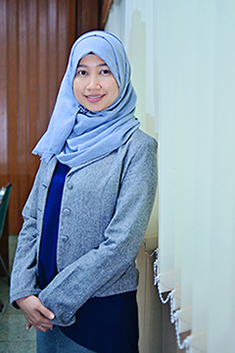Public Perception and Practices Towards Ethanol Content and Halal Assurances of Herbal Syrup Products
Downloads
Background: Herbal syrup is known to be an alternative medicine due to its safe material. However, the presence of ethanol content in herbal syrup as the extraction residue can be crucial in determining the halalness of the product. Objectives: The study aims to evaluate public perceptions and practices regarding the ethanol content and halal assurances of herbal syrup products in Yogyakarta City, Indonesia. Methods: A cross-sectional study using convenience sampling was conducted with 300 respondents for perception and 250 respondents for practices among the general public in 14 sub-districts across Yogyakarta City. A validated and self-administered questionnaire was developed and distributed both online and paper-based. Results: This study found that 51% of the respondents had positive perceptions and 62.80% of the respondents had positive practices regarding the ethanol content and halal assurances of herbal syrup products. Age (p<0.001) was found to have an association with perception, while religion (p=0.0013) was found to be associated with practices. The correlation between perception and practices was also found to be moderate (p<0.001; r=0.340). Conclusion: The majority of general public perceptions and practices in Yogyakarta City were found to be positive regarding the ethanol content and halal assurances of herbal syrup products and identified a correlation between perception and practices as well as sociodemographic characteristics with perception and practices. These findings can be used by various stakeholders, including the government and manufacturers, to improve the halal certification of herbal syrup products and raise public awareness about the ethanol content of herbal syrup products.
Annisa, A. A., Hartiningsih, S., Kholifah, S., Rahmawati, F., & Iskandar, I. (2022). What Non-Muslims Say About Halal-Certified Products?. Journal of Digital Marketing and Halal Industry; 4; 43–58. doi: 10.21580/jdmhi.2022.4.2.13140.
Aziza, Y. N., Wulandari, P., Utami, N. V., Larasati, S. W., Darsih, C., Ghozali, M. T., Endarti, D., & Laksitorini, M. D. (2025). Alcohol Use in Paediatric Medication: Potential Impact on the Brain and the Current Regulation. Neuroscience Research Notes; 8; 1-18. doi: 10.31117/neuroscirn.v8i2.398.
Djunaidi, M., Oktavia, C. B. A., Fitriadi, R., & Setiawan, E. (2021). Perception and Consumer Behavior of Halal Product Toward Purchase Decision in Indonesia. Jurnal Teknik Industri; 22; 171–184. doi: 10.22219/jtiumm.vol22.no2.171-184.
Eid, A. M., Zaid, A. N., & Kielani, J. Z. (2022). Knowledge, Perceptions and Attitudes among Sharia Practitioners in Palestine Regarding Halal Pharmaceuticals: An Exploratory Study. Journal of Religion and Health; 63; 4342–4353. doi: 10.1007/s10943-022-01604-7.
Embassy of The Republic of Indonesia in Brussels. (2021). Indonesia’s Potential Herbal Products Gain in the European Market (4th ed.). Brussels: Embassy of The Republic of Indonesia in Brussels.
Goswami, P. K., & Srivastava, R. S. (2016). Development and Evaluation of Herbal Syrup from Root Extract of Nothosaerva brachiata & Gomphrena celosiodies. IJRPC; 6; 473–475.
Hamid, A., Said, M., & Meiria, E. (2019). Potency and Prospect of Halal Market in Global Industry: An Empirical Analysis of Indonesia and United Kingdom. Business and Management Studies; 5; 54. doi: 10.11114/bms.v5i2.4167.
Haorah, J., Heilman, D., Knipe, B., Chrastil, J., Leibhart, J., Ghorpade, A., Miller, D. W., & Persidsky, Y. (2005). Ethanol-Induced Activation of Myosin Light Chain Kinase Leads to Dysfunction of Tight Junctions and Blood-Brain Barrier Compromise. Alcoholism: Clinical & Experimental Research; 29; 999–1009. doi: 10.1097/01.ALC.0000166944.79914.0A.
Indonesian Ulema Council. (2018). Fatwa of the Indonesian Ulema Council Number: 40 Year 2018 Regarding the Use of Alcohol/Ethanol in Medicinal Substances. Jakarta: Indonesian Ulema Council.
Kusumah, C. K. (2021). 12-Years Compulsory Education Policy and Education Participation Completeness:Evidence from Indonesia. The Journal of Indonesia Sustainable Development Planning; 2; 187–201. doi: 10.46456/jisdep.v2i2.138.
Laksitorini, M. D., Yathindranath, V., Xiong, W., Parkinson, F. E., Thliveris, J. A., & Miller, D. W. (2021). Impact of Wnt/β‐catenin Signaling on Ethanol‐Induced Changes in Brain Endothelial Cell Permeability. Journal of Neurochemistry; 157; 1118–1137. doi: 10.1111/jnc.15203.
Larasati, S. W. (2024). Perception and Practices towards Ethanol Content and Halal Guarantees of Herbal Syrup Product. Skripsi; Universitas Gadjah Mada, Yoryakarta.
Maulana, D. F., Makhrus, & Hasanah, H. (2022). The Urgency of MUI Halal Fatwa about Food, Beverage, Medicine and Cosmetic Products for the Consumer Protection. Volksgeist; V; 199–214. doi: 10.24090/volksgeist.
Nayeem, A. R., Camara, I., Deep, T. A., Zalil, M. A., & Akter, Mst. F. (2020). Muslim Patients Attitude an Alcohol Content in Cough Medicine: An Analysis in Islamic Perspective. International Journal of Education and Knowledge Management; 4; 1–10. doi: 10.37227/ijekm-2020-04-78.
Neo, M. S., Gupta, S. M., Khan, T. M., & Gupta, M. (2017). Quantification of Ethanol Content in Traditional Herbal Cough Syrups. Pharmacognosy Journal; 9; 821–827. doi: 10.5530/pj.2017.6.128.
Poursaleh, Z., Choopani, R., Vahedi, E., Khedmat, A. F., Ghazvini, A., Salesi, M., & Ghanei, M. (2022). Effect of Herbal Medicine Formulation (Compound Honey Syrup) on Quality of Life in Patients With COPD: A Randomized Clinical Trial. Tanaffos; 21; 336–347.
Rs, Q., Roswiem, A. P., & Suseno, D. (2021). Analysis of Alcohol Content in A Herbal Medicine of Noni Using Gas Chromatography Method. International Journal of Halal Research; 3; 1–7.
Sadeeqa, S., & Sarriff, A. (2014). Assessment of Knowledge, Attitude & Perception Among Hospital Pharmacists Regarding Halal Pharmaceuticals. Journal of Applied Pharmaceutical Science; 4; 80–86. doi: 10.7324/JAPS.2014.40515.
Sadeeqa, S., Sarriff, A., Masood, I., Saleem, F., & Atif, M. (2013). Knowledge, Attitude and Perception Regrading Halal Pharmaceuticals among General Public in Malaysia. International Journal of Public Health Science (IJPHS); 2; 143–150.
Sadeeqa, S., Sarriff, A. Bin, Masood, I., & Farooqui, M. (2013). Knowledge, attitude and perception regarding Halal Pharmaceuticals, among academicians in various universities of Malaysia. International Journal of Educational Research and Development; 2; 191–202.
Santa, K. B., Yusuf, E., & Selamat, N. W. B. (2019). Knowledge, Attitude and Perception on Halal Dietary Supplements among Sport Students in Universities of Malaysia. Journal of Food and Pharmaceutical Sciences; 2019; 14–24.
Santoso, S., Alfarisah, S., Fatmawati, A. A., & Ubaidillah, R. (2021). Correlation Analysis of the Halal Certification Process and Perceptions of the Cost of Halal Certification with the Intentions of Food and Beverage SMEs Actors. Religious: Jurnal Studi Agama-Agama Dan Lintas Budaya; 5; 297–308. doi: 10.15575/rjsalb.v5i2.11627.
Sembiring, K. H., & Arpangi. (2023). MUI Legal Authority to Provide Halal Certificates on Medicinal Products in Indonesia. Proceedings of the 5th Legal International Conference and Studies; 155–168. doi: 10.2991/978-2-38476-074-9_18.
Sultana, S., Khan, A., Safhi, M. M., & Alhazmi, H. A. (2016). Cough Suppressant Herbal Drugs: A Review. International Journal of Pharmaceutical Science Invention; 5; 15–28.
Suryawati, S., Firdausa, S., Syah, T. H., Dewi Mulia, V., Suardi, H. N., Aini, Z., Husna, F., & Andayani, H. (2023). The Use of Herbal Medicines by the Elderly in Rural Area in Indonesia: A Cross-Sectional Study Among Acehnese. Trends in Infection and Global Health; 3; 10–22. doi: 10.24815/tigh.v3i1.31438.
Utami, A. T., Wahidmurni, & Walid, M. (2022). The Effects of Religiosity and Knowledge on the Perceptions and Attitude of Muslim Doctors That Influence the Intentions That Impact on Behavior in Using Halal Drugs in Indonesia. Journal of Community Medicine and Health Solutions; 3; 21–26. doi: 10.29328/journal.jcmhs.1001016.
Wajdi, F. (2021). The Role of the Indonesian Ulema Council as the Giver of Fatwa. International Journal of Economic, Technology and Social Sciences; 2; 592–610.
Wulandari, P., Aziza, Y. N., Ghozali, M. T., Laksitorini, M. D., & Endarti, D. (2025). Pharmacists’ and Community Knowledge on The Safety and Halal Status of Pediatric Medications Containing Alcohol. Indonesian Journal of Pharmacy Indonesian; 36; 187–195.
Xuan, E. Y. H., Razak, N. F. A., Ali, A. M., & Said, M. M. (2022). Evaluation of Knowledge, Attitudes, and Perceptions on Halal Pharmaceuticals Among Pharmacy Students from Malaysian Private Universities. Journal of Advanced Pharmacy Education and Research; 12; 84–90. doi: 10.51847/D3bNfyJZ6t.
Copyright (c) 2025 JURNAL FARMASI DAN ILMU KEFARMASIAN INDONESIA

This work is licensed under a Creative Commons Attribution-NonCommercial-ShareAlike 4.0 International License.
1. The copyright of this journal belongs to the Editorial Board and Journal Manager with the author's knowledge, while the moral right of the publication belong to the author.
2. The formal legal aspect of journal publication accessibility refers to the Creative Commons Attribution-Non-Commercial-Share Alike (CC BY-NC-SA), which implies that the publication can be used for non-commercial purposes in its original form.
3. Every publication (print/electronic) is open access for educational, research, and library purposes. In addition to the objectives mentioned above, the editorial board is not responsible for copyright infringement


.jpg)















